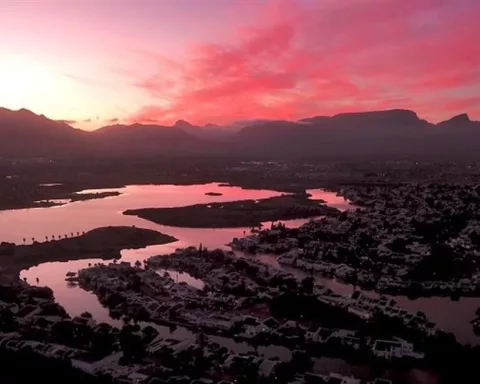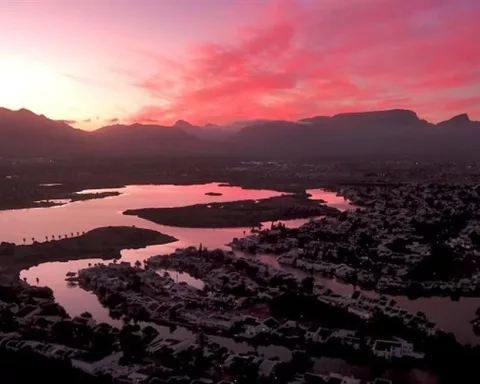South Africa’s Forestry, Fisheries, and Environment Department’s Budget Vote 32 highlights their commitment to environmental preservation and sustainable employment. The department has generated over 80,000 job opportunities through EPWP projects, with a focus on diversity and inclusion. Their collaboration with municipalities aids in delivering waste management services and generating job opportunities, while their efforts to create biodiversity infrastructure facilities reflect their commitment to biodiversity and economic development. The department’s budget vote signifies the government’s eagerness to foster sustainable growth and protect South Africa’s natural heritage, aligning with Madiba’s vision to safeguard our environment.
South Africa’s Forestry, Fisheries, and Environment Department’s Budget Vote 32 highlights the government’s commitment to environmental preservation and sustainable employment. The department has generated over 80,000 job opportunities through EPWP projects, emphasizing diversity and inclusion. Their collaboration with municipalities aids in delivering waste management services and generating job opportunities. The department’s commitment to biodiversity and economic development is reflected in their efforts to create biodiversity infrastructure facilities. Their Forestry Branch has successfully executed the five-year Forestry Masterplan, transferring plantations to communities via the Community Forestry Agreement Model.
July, known as Nelson Mandela month, saw the Deputy Minister of Forestry, Fisheries, and the Environment, Ms Bernice Swarts, present the eagerly awaited Budget Vote 32. This financial roadmap reflects the government’s dedication to promoting environmental preservation and sustainable employment, in line with the values of the highly esteemed Madiba.
Striving for Environmental Conservation and Job Creation
The department’s efforts for environmental conservation have been nothing less than admirable. Their Environmental Programmes Branch has played a pivotal role in generating an impressive 80,918 job opportunities through the Expanded Public Works Programme (EPWP) projects, exceeding the initial goal of 42,302. Intriguingly, this achievement is not only a reflection of the government’s dedication to job creation, but also an example of its commitment to diversity and inclusion, with 60% of these opportunities benefiting women and 58% reaching the youth.
An indicator of the department’s commitment to both conservation and job creation is the Municipal Greening and Cleaning Programme. This distinctive partnership with municipalities aids in delivering waste management services, eliminating unlawful hotspots, and generating a significant number of job opportunities. The department’s determination in surpassing the wetland rehabilitation target and focusing on clearing territories overrun by invasive alien species further strengthens its commitment to environmental preservation.
Emphasizing Biodiversity and Economic Development
The department deserves recognition for exceeding its objectives in creating biodiversity infrastructure facilities and biodiversity economy infrastructure facilities. The successes stand as proof of the government’s resolve to balance conservation and economic growth. These efforts provide an opportunity for both the environment and local communities to flourish, marking the trajectory towards a comprehensive biodiversity economy.
Further enhancing their commitment to job creation, the department has prioritized the establishment of 31,075 EPWP work opportunities and 22,538 full-time equivalents. Underlining the urgent need for conservation, the department aims to clear 295,000 hectares of land overrun by invasive alien plants and restore 23 wetlands.
Collaboration with SANParks and Forestry Management
Strengthening this commitment is the department’s continuous collaboration with SANParks. The organization contributes to the EPWP, focusing on job creation for women, youth, and people with disabilities. SANParks shined in the previous financial year by employing 5,150 full-time equivalents, 7,098 youth, 6,483 women, and 198 people with disabilities. Over the medium term, SANParks aims to generate over 13,860 jobs, primarily for residents of communities adjacent to national parks.
In the area of forestry management, the department’s Forestry Branch has persisted in the successful execution of the five-year Forestry Masterplan, experiencing significant investment growth. This plan has resulted in the transfer of 27 plantations, spanning 6,213 hectares, to communities via the Community Forestry Agreement Model.
Skills Development and Academic Initiatives
The department has also devised extensive skills development programs. In the previous fiscal year, the department succeeded in placing over 400 youth on the Work Integrated Learning programme and implemented an internship programme that placed 232 graduates. SANParks has also strategized to emphasize people development over the medium term, with initiatives that encompass executive coaching, management development programmes, and staff training.
In the educational field, the South African National Biodiversity Institute has trained a total of 970 graduates on various key areas through the Groen Sebenza Phase II Graduate Development Programme. This program is a key sector intervention in harmony with the Biodiversity Human Capital Development Strategy, providing training for 459 beneficiaries in biodiversity conservation.
The department’s commitment to environmental preservation, job creation, and skills development is praiseworthy. Their endeavors to find a balance between economic development and conservation manifest a dedication towards the environment and local communities. The department’s budget vote signifies the government’s eagerness to foster sustainable growth and protect South Africa’s natural heritage, aligning with Madiba’s vision to safeguard our environment.
What is South Africa’s Forestry, Fisheries, and Environment Department’s Budget Vote 32?
South Africa’s Forestry, Fisheries, and Environment Department’s Budget Vote 32 is a financial roadmap that reflects the government’s dedication to promoting environmental preservation and sustainable employment, in line with the values of Nelson Mandela.
How has the department generated job opportunities?
The department has generated over 80,000 job opportunities through EPWP projects, with a focus on diversity and inclusion. 60% of these opportunities have benefited women, and 58% have reached the youth.
What is the Municipal Greening and Cleaning Programme?
The Municipal Greening and Cleaning Programme is a partnership with municipalities that aids in delivering waste management services, eliminating unlawful hotspots, and generating a significant number of job opportunities.
What is the department’s commitment to biodiversity and economic development?
The department has exceeded its objectives in creating biodiversity infrastructure facilities and biodiversity economy infrastructure facilities, providing an opportunity for both the environment and local communities to flourish, marking the trajectory towards a comprehensive biodiversity economy.
What is the department’s collaboration with SANParks and Forestry Management?
The department collaborates with SANParks, contributing to the EPWP and focusing on job creation for women, youth, and people with disabilities. The department’s Forestry Branch has transferred 27 plantations, spanning 6,213 hectares, to communities via the Community Forestry Agreement Model.
What is the department’s emphasis on skills development and academic initiatives?
The department has devised extensive skills development programs and has succeeded in placing over 400 youth on the Work Integrated Learning programme. The South African National Biodiversity Institute has trained a total of 970 graduates on various key areas through the Groen Sebenza Phase II Graduate Development Programme.












